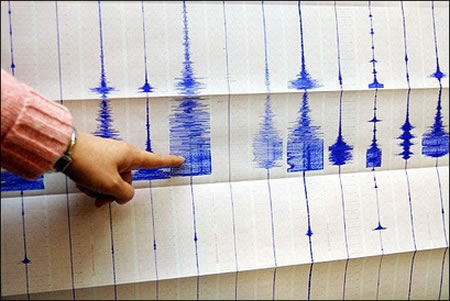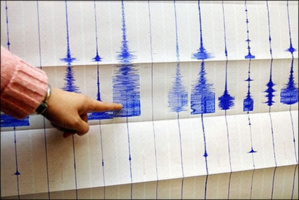When natural disasters strike, early warnings are indispensable for communities in order to reduce the risk of the loss of lives. Besides sounding the alarm, the most efficient way to save lives is to reach out to communities with practical and targeted information.
In several events at the Third World Conference on Disaster Risk Reduction, in Sendai, (which opened on Monday, 16 March, and will conclude on Wednesday, 18 March) experts from United Nations advocate that even the most sophisticated disaster risk reduction systems can prove to be futile if the population is not evacuated in time or if they fail to heed and understand the warning.
Executive Secretary of the United Nation Educational, Scientific and Cultural Organization (UNESCO) and Internal Ocean Committee, Vladimir Ryabinin, said,
In several events at the Third World Conference on Disaster Risk Reduction, in Sendai, (which opened on Monday, 16 March, and will conclude on Wednesday, 18 March) experts from United Nations advocate that even the most sophisticated disaster risk reduction systems can prove to be futile if the population is not evacuated in time or if they fail to heed and understand the warning.
Executive Secretary of the United Nation Educational, Scientific and Cultural Organization (UNESCO) and Internal Ocean Committee, Vladimir Ryabinin, said,
“early warning set-ups have to provide people information that is usable and used. People need to know what to do in the event of a tsunami.”
Noritake Nishide, Director-General of the Japan Meteorological Agency, clarified that installing more accurate seismology monitors, along with strengthening of key partnerships and improving the communications of key information to targeted people, led to improvements of early warning systems in Japan.
“Three main factors were involved in this better preparedness”, he added. “First, the issuing of daily earthquake information sensitizes and increases the awareness of the population; second, holding regular disaster scenarios – including real-time evaluations – to increase preparedness; and third, greater adoption of a multi-hazard approach to disaster resilience.”
The Deputy Director of Chile's Port Works Division Ministry of Public Works, Eduardo Mesina, felt the need for a more durable communication system and a better co-ordination with technical agencies. He was of the opinion that when these are in place, issues faced in Chile’s massive earthquake in 2010 can be avoided.
Michel Jarraud, the Secretary-General of the World Meteorological Organization’s (WMO), declared plans to support governments and other NGOs in developing multi-hazard early warning systems that provide a coordinated program for managing multiple risks.
“Fortunately we have the knowledge and tools we need to prepare for and reduce these risks. Effective disaster response requires political leadership to ensure investments in preparedness and prevention combined with weather forecasts, warnings, media reports, emergency response, health facilities, and recovery plan,”.
He went to clarify that WMO is currently working to develop “impact-based warning” that specifically informs the populace of a predicted event’s physical impacts and provides instructions for precautionary measures.
Another multi-hazard early warning system, established in Shanghai, aims to deliver alerts on floods, storm surges and tropical cyclones, as well as extreme temperatures, diseases, physical damage and various other resulting impacts.
“Resilient recovery means protecting societies against the worst damage from future disasters. The money spent is not a cost – it is a valuable investment,” said Mr. Ban, United Nations Secretary-General.
As per the United Nations 2015 is “a seminal year” in which it aims to deal with two priorities: first, is to create a post-2015 development program that would succeed the landmark Millennium Development Goals (MDGs); and the second is to implement a strong, meaningful, universal and ambitious climate change agreement by the end of 2015.
Reference
http://www.un.org/apps/news/story.asp?NewsID=50331#.VQfdno6Uf1U


 Early Warning System hold the key to Disaster Risk Reductions
Early Warning System hold the key to Disaster Risk Reductions





 Companies
Companies